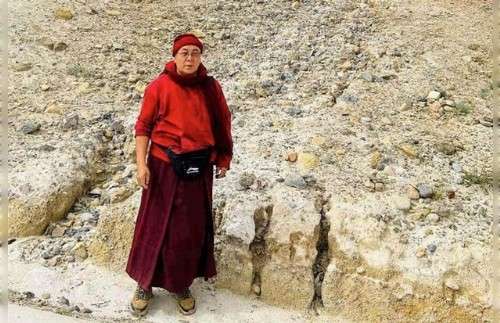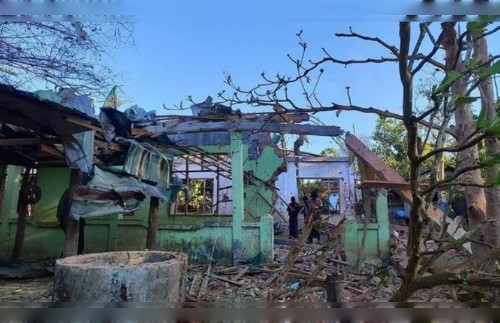
Tibetan nomads forced by government order to move from their farmland homes to suburbs in the regional capital Lhasa are facing crowded conditions, with large families piled into single dwellings and opportunities for employment cut off, Tibetan sources say.
The families, formerly residents of Phenpo Lhundrub county, about 63 km (39 miles) away from Lhasa, were ordered off their land three years ago and now face daily hardships in their new lives, one woman told RFA’s Tibetan Service.
“In our homes in Phenpo, we tilled our farms and grew food in the fields, and we didn’t have to pay for rent, electricity, or water,” RFA’s source said, speaking on condition of anonymity.
“But now we have been moved to the Kuru Sampa [Donkey’s Bridge] suburb to the east of Lhasa, and in this new location we have to pay for everything. This is a big problem for us,” she said.
With nine family members now crammed into two rooms, “we don’t feel comfortable living in our resettlement house at all,” she said. “And to make matters worse, we have nowhere to go to complain about it.”
“When we ask for the authorities’ help to redress the situation, they tell us we are acting against the law, as our relocation was done by government order.”
“We are all pastoral nomads with no skills for working in a modern city, and though we were told that the Chinese government will help to support poor Tibetan families, we haven’t received any assistance so far.”
Tibetans living in resettlement areas also have no money to pay for medical bills, and have been reduced to begging in the streets, she said.
‘Now we have nothing left’
Reluctant to believe the orders requiring them to move, families in Phenpo Lhundrub had at first approached local authorities to ask the reason for their eviction, and were told they had to leave to make way for Chinese development projects in the area, RFA’s source said.
Chinese authorities then assured the families being moved that they would be allowed to farm their land for a further three years, “But now they have built roads through our land, and the land has been ruined, and farming there is out of the question,” she said.
“Also, the Tibetan families all had to sell their livestock at a low price in order to move.”
“The Chinese have deprived us of everything we had, and now we have nothing left,” she said.
Chinese development projects in Tibetan areas have led to frequent standoffs with Tibetans who accuse Chinese firms and local officials of improperly seizing land and disrupting the lives of local people.
Many result in violent suppression, the detention of protest organizers, and intense pressure on the local population to comply with the government’s wishes.
Reported by Lobsang Chophel for RFA’s Tibetan Service. Translated by Dorjee Damdul. Written in English by Richard Finney.
Copyright © 1998-2016, RFA. Used with the permission of Radio Free Asia, 2025 M St. NW, Suite 300, Washington DC 20036. https://www.rfa.orgorg
















